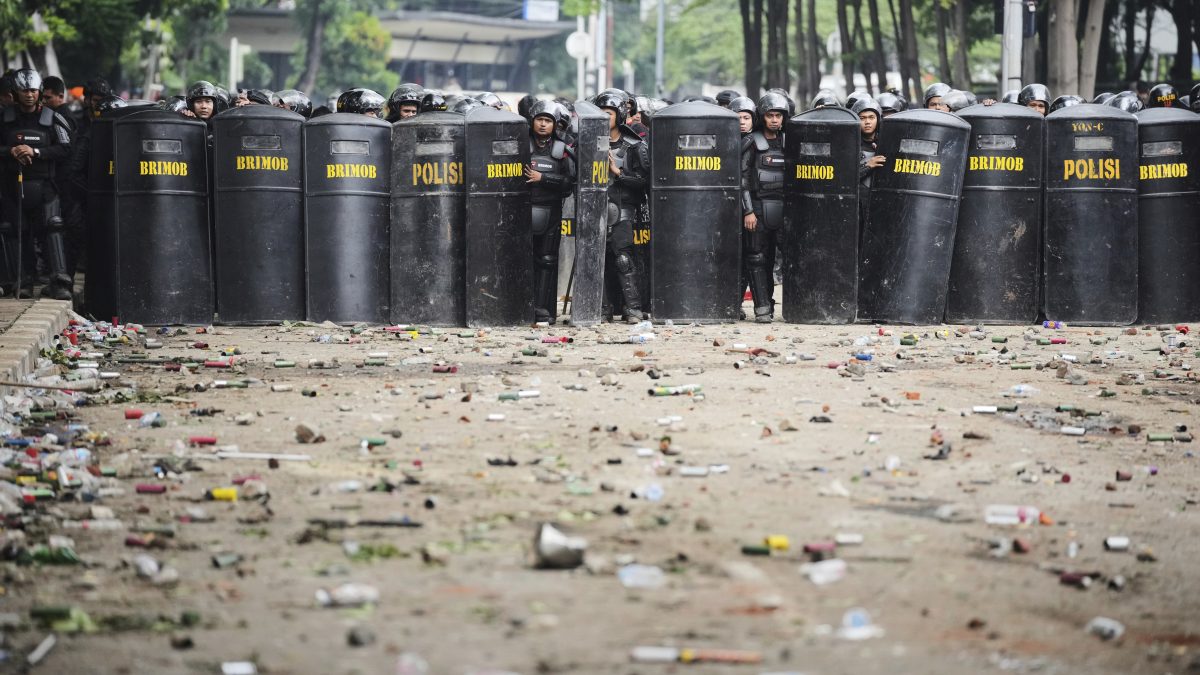At least 3 killed and 5 injured as protests swept Indonesia. Parliament buildings were torched, hundreds arrested, and Amnesty slammed the government’s crackdown.
An enraged crowd set fire to a local parliament building in an Indonesian provincial capital, killing at least three people and injuring five more, officials said.
The fire in Makassar, South Sulawesi province’s capital, erupted late Friday. According to television reports, the provincial council building caught fire overnight, turning the surrounding area an unearthly orange.
Rescuers recovered three bodies by Saturday morning, while five individuals were hospitalised with burns or broken bones after jumping from the building, according to Fadli Tahar, a local disaster official.
Protesters in West Java’s Bandung city also set a regional parliament ablaze on Friday, but no casualties were reported. In Surabaya, Indonesia’s second-largest city, protesters stormed the regional police headquarters after destroying fences and torching vehicles. Security forces fired tear gas and used water cannons, but demonstrators fought back with fireworks and wooden clubs.
Foreign embassies in Jakarta, including the US, Australia and Southeast Asian countries, have advised their citizens in Indonesia to avoid demonstration areas or large public gatherings.
Calm largely returned to Indonesia ’s capital on Saturday as authorities cleaned up burned-out cars, police offices and bus shelters that were set ablaze by angry protesters.
Five days of protests began in Jakarta on Monday, sparked by reports that all 580 lawmakers receive a monthly housing allowance of 50 million rupiah ($3,075) in addition to their salaries. The allowance, introduced last year, is almost 10 times the Jakarta minimum wage.
Critics argue the new allowance is not only excessive but also insensitive at a time when most people are grappling with soaring living costs and taxes and rising unemployment.
The protests grew wider and more violent following the death of 21-year-old ride-hailing driver Affan Kurniawan. A video on social media apparently showing his death during a rally in the capital Jakarta on Thursday shocked the nation and spurred an outcry against the security forces.
Kurniawan was reportedly completing a food delivery order when he was caught in the clash. Witnesses told local television that the armored car from the National Police’s Mobile Brigade unit suddenly sped through the crowd of demonstrators and hit Kurniawan, causing him to fall. Instead of stopping, the car ran over him.
On Saturday, hundreds of ride-hailing drivers and students in Bali staged a solidarity demonstration over Kurniawan’s death in a rare protest on the tourist island. They called for police reform and the release of those arrested during the protests.
Protesters marched to Bali’s regional police headquarters and riot police fired rounds of tear gas at them to push back those who tried to reach the heavily guarded compound. Protesters responded by throwing rocks, bottles and flares.
Clashes between riot police and protesters erupted in multiple cities across Indonesia on Friday, including in Medan, Solo, Yogyakarta, Magelang, Malang, Bengkulu, Pekanbaru and Manokwari in easternmost Papua region.
Some 950 people were arrested in rallies in Jakarta alone by Thursday, according to the National Commission on Human Rights, or Komnas HAM.
Authorities said about 25 officers were hospitalized with serious injuries after being attacked by protesters in Jakarta. The Komnas HAM believed that the number of injured people on the community side is much bigger.
Amnesty International criticized Indonesia’s government Saturday, saying it suppresses free speech with crackdowns on public protests.
“No one should lose their lives for exercising their right to protest,” said Usman Hamid, the Executive Director of Amnesty International Indonesia. “The authorities must immediately and unconditionally release anyone detained solely for exercising their rights,” he said.
End of Article

)

